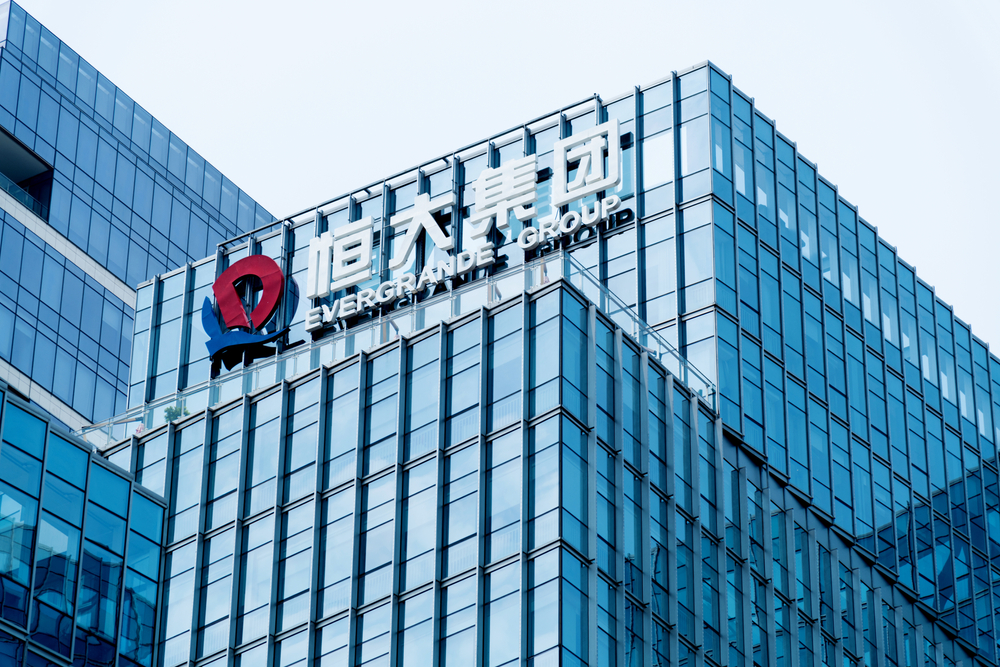Chinese real estate market in hot water as investors pull back due to the Evergrande crisis
Worries surrounding debt-strapped property developer China Evergrande have put investors on guard for evidence that the crisis may be spilling over into broader markets

Following a meeting between central government officials and Evergrande Group senior executives in Beijing in late August, Chinese regulators kept silent on the developer’s impending debt crisis for weeks.
Finally, in mid-October, central bank governor Yi Gang said the problems facing Evergrande “casts a little bit of concern”, but added: “Overall, we can contain the Evergrande risk.”
China, of course, is one of the world’s most expansive nations. Yet narrowly defined narratives like Yi’s—particularly during a crisis—often set the tone in the country.
Chinese regulators have since made sure to defer to the same watchword—“controllable”—in describing Evergrande’s increasingly urgent debt burden.
A headline in the nationalistic daily Global Times perfectly captured Beijing’s official stance: “More bond defaults likely for Chinese real estate companies, but the overall situation will be stable.”
Half of the central government’s battle will be convincing investors and consumers that everything will turn out just fine: not least to prop up flagging confidence.
But most analysts agree that things will get considerably worse before getting better.
Indeed, some believe that Evergrande’s debt repayment problems could turn into a full-blown financial crisis in China, and possibly beyond its borders.
Evergrande’s litany of woes is extensive. It has struggled to make repayments on its staggering USD300-billion mountain of debt and has failed to sell assets quickly enough to keep creditors happy.
Rare tidbits of good news, meanwhile, have been drowned out by something worse. When its suspended shares started trading again in Hong Kong in late October, Evergrande also announced that the potential USD2 billion-plus sale of a banking unit had fallen through.
Media reports suggest Chinese authorities have asked Evergrande founder Hui Ka Yan to use his considerable wealth to pay off debts.
Yet Hui has lost 70 percent of his fortune over the past year amid Evergrande’s debt crisis, meaning his assets are reportedly down from USD46 billion to USD11 billion.
His fortune could help meet short-term bond repayments, but Hui’s dwindling personal wealth now accounts for less than 4 percent of the money owed by his company.
Transparency concerns remain, especially regarding the identities of the company’s many investors. And these are the dominos expected to fall should debt repayments stall further.
Most analysts agree that things will get considerably worse before getting better. Indeed, some believe that Evergrande’s debt repayment problems could turn into a full-blown financial crisis in China, and possibly beyond its borders
“We simply don’t know who many of Evergrande’s investors are,” said Marco Metzler, a former Fitch analyst ahead of the release of a report he co-authored for the German Market Screening Agency warning Evergrande’s woes could lead to the next global financial crisis. “There could still be some negative surprises here.”
Metzler’s analysis lies at the least optimistic end of the spectrum of views on the embattled Chinese property company. But pessimism is widespread.
Central bank governor Yi’s comment in October that Evergrande “is an isolated case” appears increasingly far from the mark.
The same month, luxury apartment developer Fantasia Holdings defaulted on bonds worth USD206 million, so too did Hong Kong-listed Sinic Holdings to the value of USD250 million, and China Properties Group on USD226 million of debt.
Beijing developer Modern Land said in October it needed more time to repay a USD250 million bond. “[Defaults] are leading to a deterioration in consumer confidence and reducing interest from prospective buyers,” BCA Research said in a note in late October.
Are these signs of an Evergrande contagion starting to spread? Overseas bond defaults have reached the highest level since records started in 2018, some to around USD8.7 billion, with 34 percent in the property sector, according to Bloomberg.

The ‘big three’ ratings agencies—Moody’s, Fitch, and S&P—slashed Chinese developers’ ratings a combined 91 times in the first nine months of this year, another record. And that was before a series of further such cuts the following month.
Hong Kong-listed Kaisa Holdings saw its rating cut in late October by Fitch which followed rating cuts by Moody’s against Chinese property firms Yango Group, China Aoyuan, Greenland Holdings, R&F Properties, Shinsun Holdings and Zhongliang Holdings all in the space of less than one week, a further sign that debt problems may be speeding up in China’s property sector.
Recent liquidity problems follow a surge in aggressive borrowing in the sector between 2016 and 2018, a period in which China has become faraway the world’s leading private borrower with a ratio of well over 200 percent of GDP.
Many of China’s property sales are advance purchases and down payments before units are built, and there are now growing signs that confidence is waning among Chinese homeowners. In September, China’s new home prices fell for the first time in six years, while the real estate sector shrank 1.6 percent and construction 1.8 percent in the third quarter, according to official data from China’s National Bureau of Statistics.
The central government is now starting to reverse recent efforts to cool the overheating sector after house prices rebounded too quickly following pandemic lockdowns initiated across the country in early 2020.
Analysts reported borrowing costs for home loans being reduced in China from October. “The first signs of easing policies are emerging after weak property sector sales numbers were released,” says Cheng Wee Tan, a senior equity analyst at Morningstar.
Forecasts for China’s property sector are grim. S&P forecasts a 10 percent drop in residential sales in 2022, and a similar slide again the following year. “China’s property market is known for its boom-and-bust cycles, but the current, contagion-tinged downturn is unusually intense,” it said.
The original version of this article appeared in Issue No. 169 of PropertyGuru Property Report Magazine.
Write to our editors at [email protected].
Recommended
Why everyone is moving to Selangor and Johor: Malaysia’s real estate comeback
Malaysia’s upturn in fortunes is especially prevalent in secondary destinations such as Selangor and Johor
Penang’s silicon boom: How the US-China tech war is supercharging local real estate
Penang’s booming semiconductor industry has created ripples within the local real estate sector
New leader, new opportunities: How Hun Manet is shaking up Cambodia’s real estate game
Hun Manet is overseeing decent economic growth and widening access to the country’s real estate market for foreigners
Singapore embraces inclusive housing reforms amid resilient demand
The Lion City’s regulatory strength continues to exert appeal for international investors








